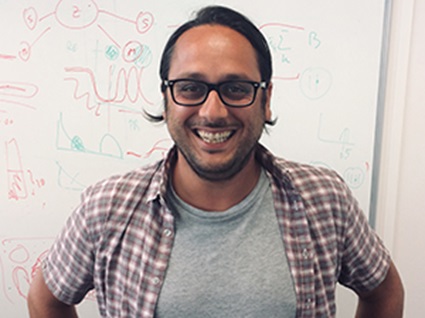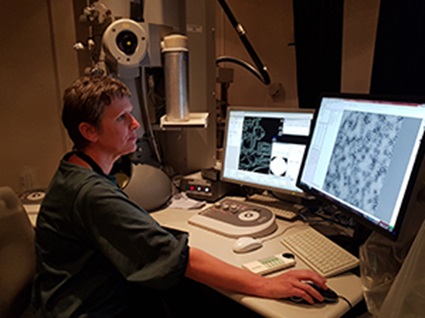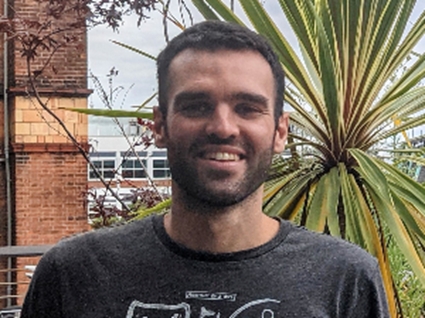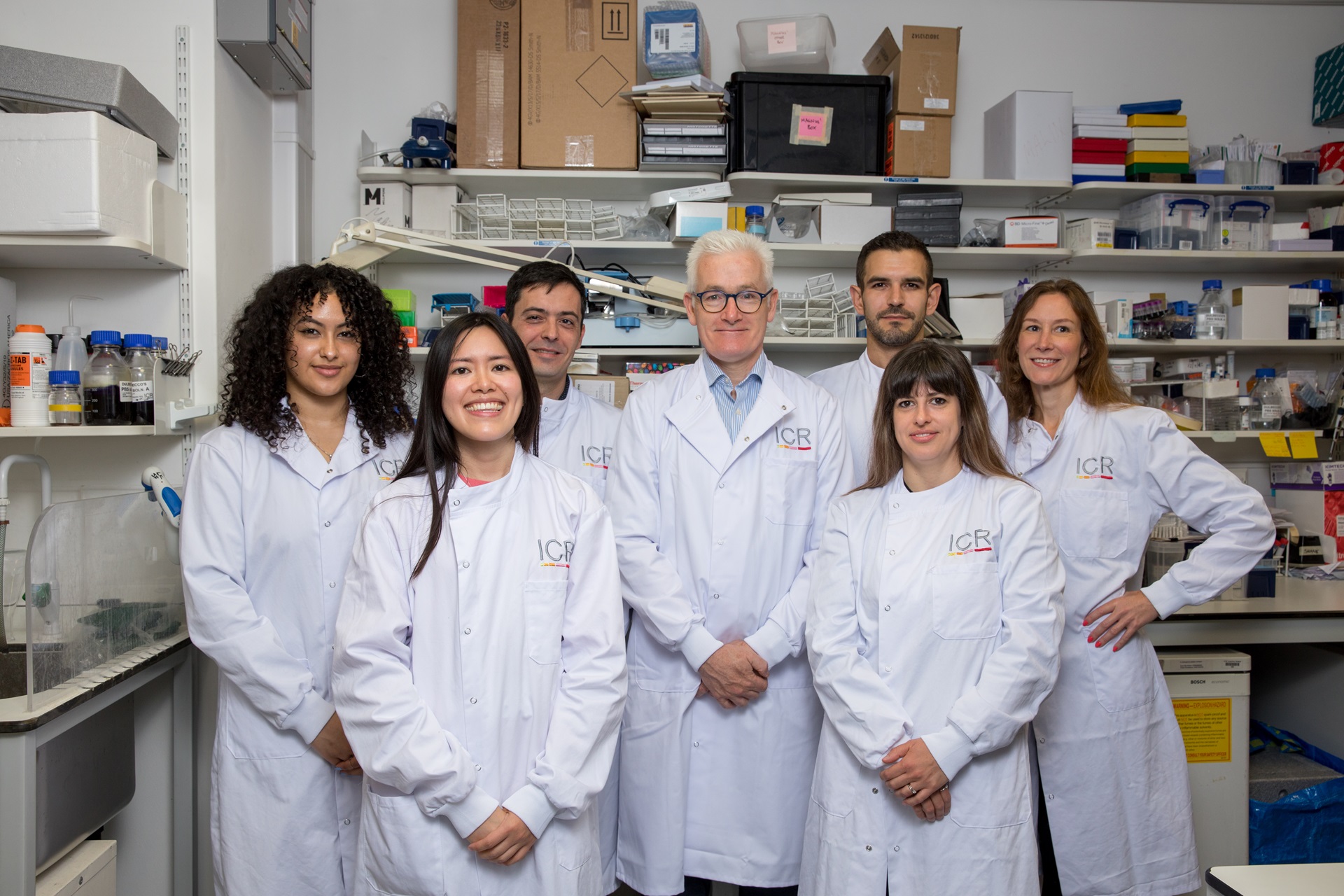Research scientists and scientific support
To join the ICR you’ll be a talented scientist looking for the next step after your initial postdoctoral studies. You’ll be ready to start leading a team independently under the mentorship of a leading senior scientist.
Research teams also include staff scientists and a number of specialist research roles such as bioinformaticians. Some senior staff scientists may run part of a team, specialise in a particular area of research within a team or work as part of a scientific service.
Our Heads of Division will be pleased to have an informal chat – you can find their contact details on our Division pages.
What we offer
As an integral part of the ICR’s faculty, you’ll receive additional start-up support (typically a postdoctoral researcher and one PhD student) and the help you need to find your feet and recruit your new team.
You will receive dedicated support in gaining further grant funding and establishing your own programme of independent research as you make the journey towards joining our permanent Faculty.
You will also have access to support networks, mentoring, career development opportunities and tailored training.
We support our scientists with state-of-the-art platform technologies and expert facilities staff, providing cutting-edge facilities for microscopy, imaging, sequencing, proteomics, X-ray crystallography and much more.
Scientific support
We employ a network of scientific officers and laboratory managers to support our researchers. These come from a variety of backgrounds and may hold responsibility for managing scientific projects, people, resources and budgets. Many are scientifically trained to PhD level, while others hold a first degree in a scientific discipline and may also hold professional management qualifications.
Laboratory managers most often come from a scientific background and have responsibilities for maintaining efficient, tidy and safe laboratories, resolving problems and introducing new systems to improve efficiency within labs. They also organise the delivery and repair of equipment, ensure decontamination procedures are carried out, organise laboratory supplies and manage budgets.
Employee stories

Dr Giulio Caravagna

Dr Fabienne Beuron

Dr Federico Tidu

Dr Fatemeh Ahmadi Moughari
Vacancies at the ICR
Group Leader in In Vivo Cancer Modelling
The Institute of Cancer Research (ICR) in London seeks to appoint a Group Leader in In Vivo Cancer Modelling to play a pivotal role in advancing our cutting-edge cancer research. The position is based at the newly established Centre for In Vivo Modelling (CIVM), part of the Division of Cancer Biology. We welcome applications at both the Career Development Faculty and Career Faculty levels. Key Requirements The successful candidate will generate and employ state-of-the-art genetic and humanised mouse models of cancer to tackle fundamental and translational questions in haemato-oncology and/or solid tumour oncology. In addition to leading a successful research group, they will expand the CIVM's research capabilities and foster productive collaborations with other groups and centres at the ICR, thus promoting in vivo modelling by integrating it into multidisciplinary projects and initiatives. Applicants must have an internationally recognised track record of leading research in in vivo modelling and advanced mouse genetics, demonstrated by high-quality publications and significant funding success. For more junior candidates, an outstanding track record in cancer research, coupled with a compelling research vision leveraging advanced genetic mouse models and clear potential to secure competitive external funding, is essential. As part of your online application you will be required to upload your full CV which will pre-populate your application form, you will also be asked to attach the following documents and failure to do so will mean your application cannot be considered on this occasion: Lists of major publications, achievements, research grants, distinctions. Research plan (five to six pages outlining your current research interests and research programme for the next 5 years) A PDF of a maximum of five key publications, or other research outputs (e.g. patents) that best demonstrate previous productivity You must also complete the personal statement section of the application form in the format of a covering letter including the names and contact details of three academic referees Department/Directorate Information: Cancer Biology Division Information The ICR is one of the world’s most influential cancer research institutions, with an outstanding track record of achievement dating back more than 100 years. In addition to being one of the UK’s leading higher education institutions for research quality and impact, the ICR is consistently ranked among the world’s most successful for industry collaboration. As a member institution of the University of London, we also provide postgraduate higher education of international distinction. One of the ICR’s key research strategies is to defeat cancer by viewing it as a dynamic ecosystem. We aim to solidify our expertise in state-of-the-art in vivo cancer models to probe these complex cancer ecosystems, discover their underlying biology, and identify new therapeutic targets. The postholder will significantly contribute to driving these strategic priorities. We encourage all applicants to access the job pack attached for more detailed information regarding this role. If you would like to informally discuss this position, please contact Professor Kamil R. Kranc ([email protected]), Director of the Centre for In Vivo Modelling, or Professor Chris Jones ([email protected]), Head of the Division of Cancer Biology at the ICR.
Group Leader in Cancer Stem Cell Biology
Key Requirements As part of your online application you will be required to upload your full CV which will pre-populate your application form, you will also be asked to attach the following documents and failure to do so will mean your application cannot be considered on this occasion: Lists of major publications, achievements, research grants, distinctions. Research plan (five to six pages outlining your current research interests and research programme for the next 5 years) A PDF of a maximum of five key publications, or other research outputs (e.g. patents) that best demonstrate previous productivity You must also complete the personal statement section of the application form in the format of a covering letter including the names and contact details of three academic referees Department/Directorate Information: Cancer Biology Information The Institute of Cancer Research (ICR) in London seeks to appoint a Group Leader in Cancer Stem Cell Biology to play a pivotal role in advancing our cutting-edge cancer research. The position will be based in newly-refurbished laboratory and office space at our Sutton campus within the Division of Cancer Biology. We welcome applications at both the Career Development Faculty and Career Faculty levels. The ICR is one of the world’s most influential cancer research institutions, with an outstanding track record of achievement dating back more than 100 years. In addition to being one of the UK’s leading higher education institutions for research quality and impact, the ICR is consistently ranked among the world’s most successful for industry collaboration. As a member institution of the University of London, we also provide postgraduate higher education of international distinction. One of the ICR’s key research strategies is to defeat cancer by viewing it as a dynamic ecosystem. We aim to solidify our expertise in the biology of cancer stem cells. The postholder will significantly contribute to understanding the underlying biology of cancer stem cells and how this may be exploited to address key questions in tumour relapse, disease progression and metastasis. The successful candidate will have a compelling research programme focused on cancer stem cell biology in an area which complements existing disease-specific expertise at the ICR / Royal Marsden NHS trust. Possible areas of research include (but are not restricted to) basic mechanisms of self-renewal and pluripotency, regulation of cancer stem cell fate / differentiation, how they remodel the tumour microenvironment into a supportive niche, targeting treatment resistance of cancer stem cells, and the role of CSCs in driving the metastatic cascade. Applicants must have an internationally recognised track record of leading research in cancer stem cell biology, demonstrated by high-quality publications and significant funding success. For more junior candidates, an outstanding postdoctoral track record in cancer research, coupled with a compelling research vision in a strategic area of cancer stem cell biology and clear potential to secure competitive external funding, is essential. If you would like to informally discuss this position, please contact Professor Chris Jones ([email protected]), Head of the Division of Cancer Biology at the ICR.
Postdoctoral Training Fellow in Hypoxia and Leukaemia Biology
Under the guidance of Professor Kamil Kranc, we are seeking to recruit a Postdoctoral Training Fellow to pursue therapeutic targeting of the cellular oxygen-sensing system in order to eliminate leukaemic stem cells in acute myeloid leukaemia (AML) and develop effective treatments for this devastating disease. We have identified inhibition of hypoxia-inducible factor (HIF) hydroxylases (PHDs) as a promising non-toxic strategy to target leukaemic stem cells by modulating HIF signalling (Lawson/Holt-Martyn et al., Nature Cancer, 2024; Vukovic et al., Journal of Experimental Medicine, 2015; Vukovic et al., Blood, 2016). The postholder will investigate how inactivation of PHDs and related enzymes impacts AML biology, identify AML subtypes sensitive to these interventions, evaluate novel small-molecule inhibitors in vivo, and discover synthetic lethal vulnerabilities and resistance mechanisms to inform optimal combination strategies and overcome therapeutic resistance. About you The successful candidate must have: PhD in hypoxia biology, biochemistry, cell biology, molecular biology, stem cell biology, oncology or chemical biology. Significant experience in hypoxia biology/biochemistry, stem cell biology, and cancer research. Previous postdoctoral experience in hypoxia and/or leukaemia biology. Candidates who are nearing completion of their PhD may apply, but confirmation on awarded PhD is required within 6 months of employment. The ICR has a workforce agreement stating that Postdoctoral Training Fellows can only be employed for up to 7 years as PDTF at the ICR, providing total postdoctoral experience (including previous employment at this level elsewhere) does not exceed 7 years. For general information on Postdocs at The ICR, more information can be found here. Department/Directorate Information: The Haemato-Oncology Group specialises in understanding and targeting leukaemic stem cells, which are responsible for AML initiation, disease progression, relapse, and resistance to conventional therapies. Our group focuses on discovering cures for acute myeloid leukaemia with an aim to identify novel therapeutic targets for selective elimination of LSCs, without disrupting normal haematopoiesis. What we offer A dynamic and supportive research environment Access to state-of-the-art facilities and professional development opportunities Collaboration with leading researchers in the field Competitive salary and pension We encourage all applicants to access the job pack attached for more detailed information regarding this role. For an informal discussion regarding the role, please contact Professor Kamil Kranc via email [email protected]
Postdoctoral Training Fellow in RNA and Leukaemia Biology
Under the guidance of Professor Kamil Kranc, we are seeking to recruit a Postdoctoral Training Fellow to work on therapeutic targeting of RNA modifications in acute myeloid leukaemia (AML). The successful candidate will investigate strategies to eliminate leukaemic stem cells and play a central role in developing curative treatments for this aggressive disease. Our recent work has demonstrated that inactivation of readers of the m6A mRNA modification represents a promising, non-toxic strategy for targeting leukaemic stem cells in AML (Paris et al., Cell Stem Cell, 2019; Mapperley et al., Journal of Experimental Medicine, 2021; Turner et al., eLife, 2022). Building on these findings, the postholder will explore the impact of disrupting the YTHDF family of m6A readers on AML biology, identify disease subtypes most responsive to this approach, test novel small-molecule inhibitors in vivo, and uncover synthetic lethal interactions and resistance mechanisms to guide rational combination therapies. About you The successful candidate must have: PhD in biochemistry, RNA biology, cell biology, molecular biology, stem cell biology, oncology or similar. Excellent verbal and written communication skills. Essential for communicating research, training others and drafting of reports or publications. Significant experience in RNA biology, stem cell biology, and cancer research. An excellent publication record with a track record of research excellence. Candidates who are nearing completion of their PhD may apply, but confirmation on awarded PhD is required within 6 months of employment. The ICR has a workforce agreement stating that Postdoctoral Training Fellows can only be employed for up to 7 years as PDTF at the ICR, providing total postdoctoral experience (including previous employment at this level elsewhere) does not exceed 7 years. For general information on Postdocs at The ICR, more information can be found here. Department/Directorate Information The Haemato-Oncology Group specialises in understanding and targeting leukaemic stem cells, which are responsible for AML initiation, disease progression, relapse, and resistance to conventional therapies. Our group focuses on discovering cures for acute myeloid leukaemia with an aim to identify novel therapeutic targets for selective elimination of LSCs, without disrupting normal haematopoiesis. What we offer A dynamic and supportive research environment Access to state-of-the-art facilities and professional development opportunities Collaboration with leading researchers in the field Competitive salary and pension We encourage all applicants to access the job pack attached for more detailed information regarding this role. For an informal discussion regarding the role, please contact Professor Kamil Kranc via email on [email protected]
